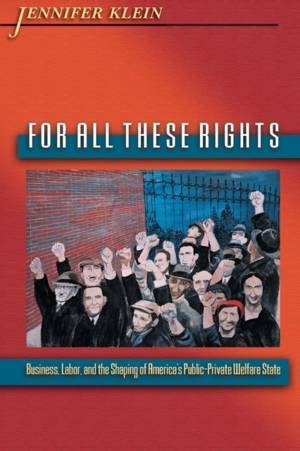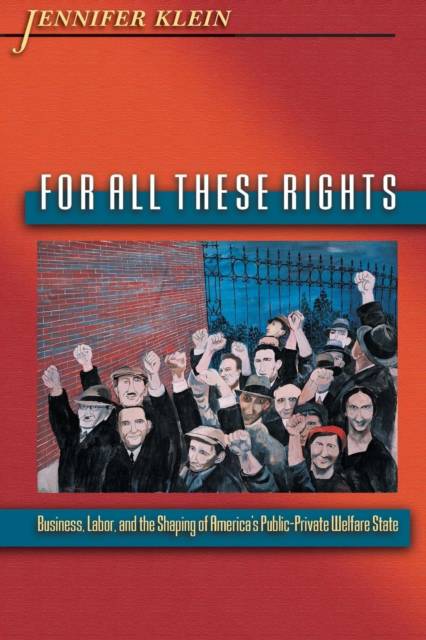
- Afhalen na 1 uur in een winkel met voorraad
- Gratis thuislevering in België vanaf € 30
- Ruim aanbod met 7 miljoen producten
- Afhalen na 1 uur in een winkel met voorraad
- Gratis thuislevering in België vanaf € 30
- Ruim aanbod met 7 miljoen producten
For All These Rights
Business, Labor, and the Shaping of America's Public-Private Welfare State
Jennifer KleinOmschrijving
The New Deal placed security at the center of American political and economic life by establishing an explicit partnership between the state, economy, and citizens. In America, unlike anywhere else in the world, most people depend overwhelmingly on private health insurance and employee benefits. The astounding rise of this phenomenon from before World War II, however, has been largely overlooked. In this powerful history of the American reliance on employment-based benefits, Jennifer Klein examines the interwoven politics of social provision and labor relations from the 1910s to the 1960s. Through a narrative that connects the commercial life insurance industry, the politics of Social Security, organized labor's quest for economic security, and the evolution of modern health insurance, she shows how the firm-centered welfare system emerged. Moreover, the imperatives of industrial relations, Klein argues, shaped public and private social security.
Looking closely at unions and communities, Klein uncovers the wide range of alternative, community-based health plans that had begun to germinate in the 1930s and 1940s but that eventually succumbed to commercial health insurance and pensions. She also illuminates the contests to define "security"--job security, health security, and old age security--following World War II.For All These Rights traces the fate of the New Deal emphasis on social entitlement as the private sector competed with and emulated Roosevelt's Social Security program. Through the story of struggles over health security and old age security, social rights and the welfare state, it traces the fate of New Deal liberalism--as a set of ideas about the state, security, and labor rights--in the 1950s, the 1960s, and beyond.
Specificaties
Betrokkenen
- Auteur(s):
- Uitgeverij:
Inhoud
- Aantal bladzijden:
- 392
- Taal:
- Engels
- Reeks:
- Reeksnummer:
- nr. 42
Eigenschappen
- Productcode (EAN):
- 9780691126050
- Verschijningsdatum:
- 13/03/2006
- Uitvoering:
- Paperback
- Formaat:
- Trade paperback (VS)
- Afmetingen:
- 155 mm x 234 mm
- Gewicht:
- 530 g

Alleen bij Standaard Boekhandel
Beoordelingen
We publiceren alleen reviews die voldoen aan de voorwaarden voor reviews. Bekijk onze voorwaarden voor reviews.











